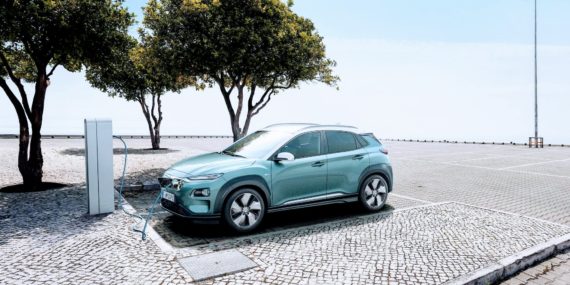Last year, Hyundai announced that it was charting its own course when it comes to developing solid-state battery technology. Rather than relying on its traditional battery partners, Samsung SDI and LG Chem, it had its own people doing the basic research. “Hyundai is developing solid-state batteries through its Namyang R&D Center’s battery precedence development team and it has secured a certain level of technology,” a source within Hyundai told The Korea Herald.
What makes this story interesting is that German automakers seem to have taken the opposite tack to get to the future. They all thought about creating their own battery technology and building their own batteries but have elected instead to let the battery manufacturers do the heavy lifting. They will be content to simply be customers. That approach has led companies like China’s Contemporary Amperex Technologies, Ltd. to build new battery factories in Germany.
Solid-state batteries are the Holy Grail of battery researchers around the world. CleanTechnica readers sometimes tire of all the stories about new breakthroughs in battery technology — it seems like there is at least one every week — but that is only because there is so much news to report about. Solid-state batteries will be cheaper to manufacture and have higher energy storage capacity than conventional lithium ion batteries. Both factors will hasten the day when EVs cost the same or less than cars with internal combustion engines. They also are far less prone to explosion and fire — an important advance in safety.
Now comes news from AutoBlog that Hyundai has invested in Ionic Materials, a company based in Woburn, Massachusetts, that says it has made significant progress in developing solid-state battery technology. Ionic Materials is headed by Michael Zimmerman and lists Bill Joy as one of the members of its board of directors. In February of this year, Joy invested $65 million in the company.
On its website, the company says, “Ionic’s polymer electrolyte represents a major breakthrough in battery technology. By enabling the creation of batteries that are safer, cheaper, and higher performance than the current state-of-the-art, Ionic’s polymer electrolyte shatters the traditional battery design paradigm, under which safety, cost, and performance must generally be traded off against one another. We are excited to bring this technology to market with core partners in the battery industry.” The company says the polymer it has created is the first in the world to conduct electrons at room temperature.
According to The Korea Times, Hyundai expects to have its first cars with solid-state batteries on the road by 2025. Since it takes most companies about 5 years to design a new car, get their supply chain in place, and start production, the thinking is that Hyundai will need to at least have production prototypes of its new solid-state battery available by 2020 in order to get the process started. Exciting times ahead if we can be patient enough to wait for all these new technologies to come to market. Not that we have much choice.
Source: Cleantechnica




